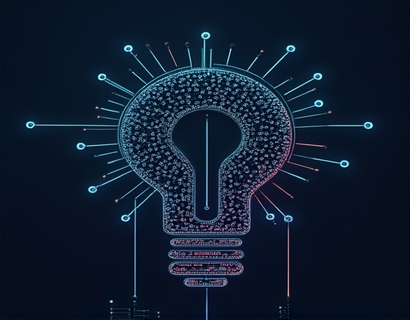Empowering Rehabilitation Journeys with AI-Powered Information Hubs
In the ever-evolving landscape of healthcare, the integration of artificial intelligence (AI) into rehabilitation services marks a significant milestone. An AI-powered rehabilitation information hub represents a transformative approach to supporting individuals and professionals alike, offering a secure and comprehensive platform for navigating the complexities of rehabilitation. This advanced chat platform is designed to deliver accurate, up-to-date, and relevant information, empowering users to make informed decisions throughout their recovery process.
Understanding the Need for AI in Rehabilitation
The journey through rehabilitation is fraught with challenges, from understanding available services to managing expectations and maintaining motivation. Traditional methods of information dissemination, such as printed materials or basic websites, often fall short in providing the depth and immediacy of information required. AI-powered platforms address these gaps by offering real-time, personalized support, ensuring that users have access to the most current and accurate data at their fingertips.
Key Features of an AI-Powered Rehabilitation Information Hub
An AI-powered rehabilitation information hub is more than just a database of information. It is an interactive platform that uses natural language processing (NLP) to understand and respond to user queries in a conversational manner. Key features include:
- Comprehensive Database: A vast repository of information on various rehabilitation services, including physical therapy, occupational therapy, speech therapy, and mental health support.
- Personalized Recommendations: Using machine learning algorithms, the platform can suggest tailored rehabilitation options based on user input and preferences.
- Real-Time Updates: Ensuring that users always have access to the latest research, treatment methods, and service offerings.
- Secure Communication: Encrypted chat functionality to protect user privacy and ensure sensitive information is handled with the utmost care.
- Multilingual Support: Breaking language barriers to make information accessible to a broader audience.
Enhancing User Experience through AI
The AI chat interface is designed with the user experience at its core. By leveraging NLP, the platform can understand and interpret user queries accurately, providing relevant and concise responses. This not only saves time but also reduces the frustration often associated with navigating complex healthcare information. Users can ask questions, express concerns, and receive guidance in a manner that feels natural and supportive.
Moreover, the AI can learn from user interactions, continuously improving its responses and recommendations. This adaptive nature ensures that the platform remains a valuable resource over time, evolving to meet the changing needs of its users.
Secure Chat for Informed Choices
Security is paramount in any healthcare application, and an AI-powered rehabilitation information hub prioritizes this aspect. Secure chat functionality ensures that all communications between users and the platform are encrypted, protecting personal information and maintaining confidentiality. This level of security builds trust, encouraging users to engage openly and honestly, which is crucial for receiving the most effective support.
Informed choices are at the heart of successful rehabilitation. By providing users with comprehensive and reliable information, the platform empowers them to make decisions that align with their unique needs and goals. Whether it's selecting a therapy provider, understanding treatment options, or managing expectations, the AI chat interface offers the necessary insights to guide users confidently through their journey.
Benefits for Healthcare Professionals
Healthcare professionals also benefit significantly from an AI-powered rehabilitation information hub. For therapists and medical practitioners, the platform serves as a valuable tool for staying updated on the latest research, treatment protocols, and industry standards. The AI can provide summaries of recent studies, highlight best practices, and offer insights into emerging therapies, ensuring that professionals are well-informed and equipped to deliver the best possible care.
Additionally, the platform can facilitate collaboration among healthcare providers by offering a shared repository of knowledge and resources. This can lead to more coordinated and effective treatment plans, ultimately improving patient outcomes.
Navigating the Rehabilitation Industry
The rehabilitation industry is diverse and complex, encompassing various services and specialties. An AI-powered information hub simplifies navigation by categorizing information into clear, accessible sections. Users can explore topics such as:
- Types of Rehabilitation Services: Detailed descriptions of different therapy types, including their objectives, methods, and typical duration.
- Finding a Provider: Tools and resources to help users locate qualified professionals in their area, including filters for specific needs and insurance coverage.
- Rehabilitation Technologies: Information on assistive devices, software, and other technological advancements that support the rehabilitation process.
- Financial Assistance: Guidance on insurance options, government programs, and other financial support available to help manage rehabilitation costs.
- Patient Stories and Testimonials: Real-life experiences from others who have undergone similar rehabilitation journeys, providing inspiration and practical insights.
Empowering Patients Through Education
Education is a cornerstone of successful rehabilitation. An AI-powered information hub plays a crucial role in educating patients about their conditions, treatment options, and the rehabilitation process as a whole. By demystifying complex medical information and presenting it in an understandable format, the platform helps patients feel more in control of their recovery.
For instance, users can ask questions about specific conditions, such as the causes, symptoms, and typical treatment pathways. The AI can provide detailed explanations, backed by scientific research, helping patients understand their situation better. Additionally, the platform can offer tips on managing pain, maintaining mobility, and incorporating rehabilitation exercises into daily life.
Building a Community of Support
Rehabilitation is not just a medical process; it is also a personal journey that benefits from emotional and social support. An AI-powered information hub can foster a sense of community by connecting users with support groups, forums, and peer networks. These virtual spaces allow individuals to share experiences, offer encouragement, and learn from one another, reducing feelings of isolation and enhancing motivation.
The AI can facilitate these connections by recommending relevant groups based on user interests and needs, ensuring that support is both meaningful and targeted. This community aspect is vital for maintaining morale and commitment throughout the rehabilitation process.
Continuous Improvement and Innovation
The field of AI in healthcare is rapidly advancing, and an information hub must stay at the forefront of these developments to remain effective. Continuous improvement involves regular updates to the database, incorporating new research findings, and refining AI algorithms to enhance accuracy and relevance. User feedback plays a critical role in this process, as it provides valuable insights into areas for improvement and new features to be developed.
Innovation also extends to integrating emerging technologies, such as virtual reality (VR) and augmented reality (AR), to create immersive rehabilitation experiences. The AI can provide guidance on how these technologies can be utilized to enhance traditional therapy methods, offering users a glimpse into the future of rehabilitation.
Conclusion
An AI-powered rehabilitation information hub represents a significant advancement in healthcare support, offering a secure, comprehensive, and user-friendly platform for navigating the rehabilitation journey. By providing accurate, up-to-date information and fostering a supportive community, such a platform empowers both patients and healthcare professionals to make informed decisions and achieve better outcomes. As technology continues to evolve, the potential for AI to transform rehabilitation support is immense, paving the way for a more accessible, effective, and personalized healthcare experience.










































